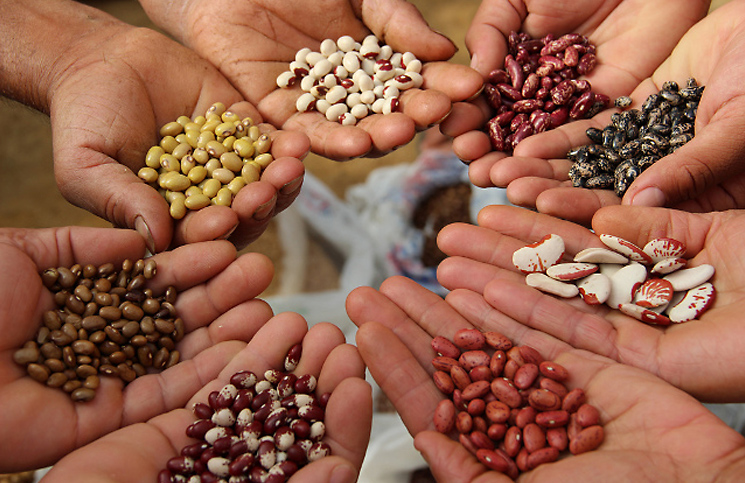Today we joined 80+ US & Canadian groups in urging President Joe Biden and Prime Minister Justin Trudeau to transparently report GHG emissions from logging - a critical step towards effective climate action, forest protection & climate-safe forestry.
View the letter here.
View the Press Release here.
March 22, 2023
Dear President Biden and Prime Minister Trudeau,
As more than eighty organizations and scientists from both Canada and the United States, we are writing to urge your governments to transparently account for and report on greenhouse gas emissions from industrial logging. While we applaud your governments’ commitment to 2030 climate targets and stated support of natural climate solutions, the fact that emissions from industrial logging are not separately and transparently reported jeopardizes the integrity of these 2030 targets and hinders the advancement of truly ambitious forest protection policies.
Transparent and accurate reporting of greenhouse gas emissions is the bedrock of scientifically driven climate policy. Annual greenhouse gas inventories are the foundation from which countries both chart progress toward Paris Agreement targets and derive information about appropriate policy measures to reduce the impact of high-emitting sectors and transition to more sustainable economies. Unfortunately, both Canada and the United States’ inventories have a substantial reporting gap, omitting clear and transparent reporting on the impact of industrial logging.
Industrial logging1 is a high-emitting sector, with a climate impact on par with that of other sectors included in the inventories. In Canada, the logging industry clearcuts more than 550,000 hectares of forest each year,2 much of this in high-carbon primary forests. A recent conservative estimate, based on government data, placed the logging industry’s 2020 net emissions at approximately 75 Mt CO2 annually–roughly equal to emissions from Canada’s oil sands production.3 In the United States, the Forest Service found that “timber harvesting, and not land use change or fire, was the largest source of gross emissions from U.S. forests between 2006 and 2010.”4[4]
Despite the logging industry’s status as a high-emitting sector, the U.S. and Canadian inventories do not separately and transparently report on its climate impact. Instead, the logging industry’s emissions are subsumed under broader reporting on land use, land-use change, and forestry (LULUCF). This practice makes it exceedingly difficult to discern what carbon fluxes are attributable to the logging industry and, more specifically, what logging industry practices offer the greatest potential for mitigation.
The policy impacts of logging’s omission from Canada and the United States’ inventories are sweeping. It has resulted in a “climate-blind” forest decision making process divorced from the climate ramifications of the logging industry’s practices. Decisions to forgo forest protections, allow certain annual allowable cuts, or directly subsidize logging industry expansion do not factor in climate considerations because the necessary information is not available. It also prevents the implementation of incentives to drive climate-friendlier logging practices or invest in new sustainable economies.
Separate and transparent reporting will not only facilitate data-driven policy making, but also allow for the recognition of progress toward mitigating logging industry emissions. We have been encouraged by your governments’ recent commitments advancing the preservation and restoration of forest ecosystem health. As you continue to build on and implement these commitments, transparent logging industry reporting will allow your governments to reflect successful efforts to reduce these emissions and track the sector’s progress toward our countries’ 2030 climate goals.
As you meet to discuss the most pressing issues our countries face, we urge you to jointly commit to transparently reporting on emissions from industrial logging. There is significant progress our two countries can make together to advance forest protections domestically and globally. Clear and transparent disclosure of industrial logging’s climate impact will ensure the United States and Canada can lead with policy that is robust and data-driven, while modeling best practices for forested countries around the world.
Here is a link to the final letter and all the signatures.
1 Encompassing emissions and removals associated with tree harvesting, post-harvest regeneration, and the storage and decay of carbon in harvested wood products. 2 National Forestry Database (Canada), “Forest Area Harvested on Private and Crown Lands,” http://nfdp.ccfm.org/en/data/harvest.php, accessed March 15, 2023. 3 M. Bramley & G. Saul, “What are the Net Greenhouse Gas Emissions from Logging in Canada?” Nature Canada & NRDC, October 2022, https://naturecanada.ca/wp-content/uploads/2022/10/Report-What-Are-Net-GHGEmissions-From-Logging-in-Canada.pdf. 4 United States Forest Service, “The U.S. Forest Carbon Accounting Framework: Stocks and Stock Change, 19902016,” November 2015, https://www.fs.usda.gov/nrs/pubs/gtr/gtr_nrs154.pdf. 2





